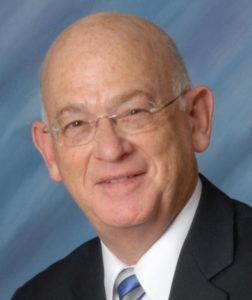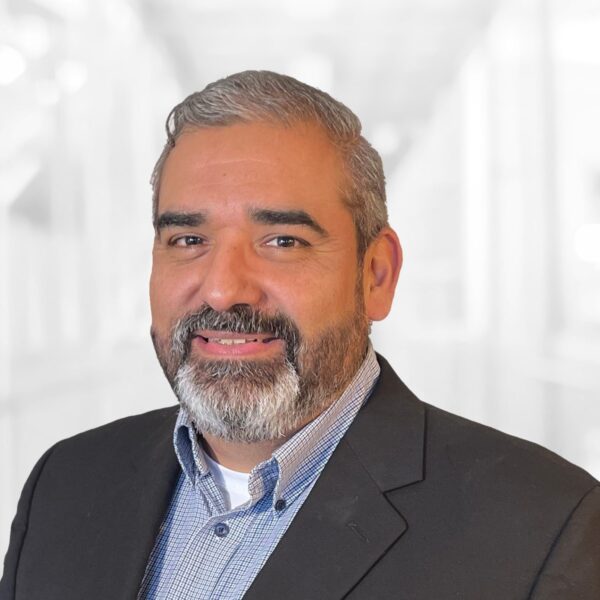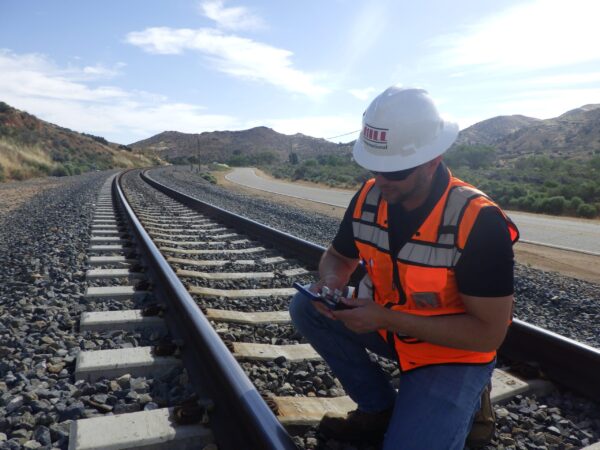
March 12, 2025 | Articles
Get Stoked: Hill International Makes Big Waves in Spain’s Surfing Scene

How Can We Help? A Discussion with Hill International FTA Program Manager Mike Radbill, PE, F.ASCE

Michael E. Radbill, PE, has more than 45 years of experience in the construction industry. Serving as Principal, Program Manager, and Project Manager, Radbill has worked on projects for such notable clients as the Federal Transit Administration (FTA), the Federal Railroad Administration (FRA), and the U.S. Army Corps of Engineers (USACE). Working on construction projects ranging from $1 million to nearly $12 billion, Radbill has provided project management oversight (PMO) for both mega-projects and smaller assignments across the U.S.
As Hill International, Inc.’s PMO Program Manager for the FTA, Radbill supervises the delivery of Hill’s oversight services, including scheduling, requirements compliance, budget validation, procurement support, design reviews, constructability reviews, cost management, quality management, commissioning management, and postconstruction phase services. His PMO work for the FTA and for other transit clients has helped to improve quality, identify management areas in need of improvement, and enhance delivery processes across the project lifecycle.
Insights & Expertise: How would you summarize your PMO work for the FTA?
Radbill: I’ve been a part of Hill’s FTA PMO team since 2012, when I started as Task Order Manager for three WMATA (Washington Metropolitan Area Transit Authority) programs. The first was the SIRP—the System Infrastructure Rehabilitation Program—which encompassed work on the Red and Orange/Blue rail lines, as well as rail yard projects, and a
bus maintenance facility project. The second was construction of new maintenance and test track facilities for WMATA’s new 7000 series railcars. The third assignment was WMATA’s SafeTrack Program. SafeTrack was an accelerated trackwork maintenance project that addressed enhanced safety and reliability measures and did so by expanding work times on weeknights, weekends, and other non-rush hour periods. The SIRP and the 7000 series facilities were complex, multi-year programs with ambitious goals tied to WMATA’s mission. The ambitious SafeTrack project was completed within one year and on schedule.
Today, as Program Manager of the entire Hill PMO team, I still support specific projects and offer guidance to team Task Order Managers, such as advice and reviews for the Honolulu Rail Transit project and SEPTA projects. The individual Task Order Managers lead the work on these assignments, but I’m available to help if needed and to make sure we have enough resources and the right expertise assigned to each task. Outside Hill’s FTA contract, I provide management oversight services for the Tren Urbano system in Puerto Rico and the Gateway Program in New York and New Jersey.
As the PMO Contractor (PMOC), we don’t tell individual project sponsors—those transit agencies that receive project funding from the FTA—how to manage their projects. That’s not the PMOC’s role. Our responsibility is to observe and verify sponsors are implementing their projects in compliance with federal requirements and then report our findings to FTA.
We also advise and recommend ways sponsors can improve their project processes and protocols. This might involve simply asking the right questions—why is an issue occurring? What’s your plan to address the issue? Do you have the resources and expertise to make the plan work? Sometimes it’s just sharing our expertise and experience. The Hill PMO team is composed of Task Order Mangers with decades of work in the U.S. transit industry, and we can pass on the benefits of that experience and knowledge to sponsors, as well as to the FTA itself.
How would you explain PMO to a potential client?
Project management oversight is observing the critical project elements for compliance with the specific project requirements. These elements include budget, schedule, safety, quality, contracting, controls, personnel, reporting, and other requirements such as Buy America provisions and Americans with Disabilities Act requirements. That’s PMO in a nutshell. In verifying that compliance, the PMO can add quite a bit. For me, the question I always begin oversight with is “how can we help you?”
For Hill, PMO is about compliance, certainly. But it’s also about working with a project sponsor and the entire project team to share insights and suggestions. For example—on WMATA’s SIRP, we noticed that NCRs (Non-Conformance Reports) were taking a long time to close out and were increasing in frequency. I graphed out NCR growth and showed it to the project team at one of our regular meetings. Visualizing data is great to recognize trends, and spotting those trends early, when the team can take care of them before they impact project and schedule, is a main benefit of PMO. So, the team then had a metric to work towards, and within a month the incidence of NCRs began to decline, and open NCRs were closed out more quickly.
PMO can also be a big help in getting a project off to good start. One of our functions for the FTA is reviewing sponsor Project Management Plans, or PMPs. The PMP is a living document that effectively covers every area of a project, from how it will be controlled to how quality will be managed to what software systems will be used
to what personnel roles are needed and when. It’s a complex document, and it evolves over the life of the project, but it’s crucial to establishing the processes and procedures the team will use to manage the work before work even begins.
Our Task Order Mangers review sponsors’ PMPs for completeness and compliance with FTA requirements, which seems straight forward enough. But when needed, we can also assist with developing the PMP—not writing the plan, because that’s the sponsor’s responsibility. Instead, we can and have run workshops for our FTA assignments on putting together a good PMP and on facilitating PMP development in a timely manner. The result for the sponsor is a plan that’s not only compliant, but also captures the best practices and lessons learned of the entire team, so when the project hits a challenge, there is already a roadmap in the PMP on how to manage that challenge.
When does PMO work well? When does it not work well?
To work well, the PMO must know the sponsor organization and know it well. This includes the structure of the agency, its mission and philosophy, its culture, and its preferences. Tren Urbano’s culture is very different from WMATA’s, for example, and the PMOC has to grasp that difference to be effective. This is true of the individuals we work with as well. Does the sponsor’s project manager have the skills and experience to manage the project successful? If not, we can identify the skills they need to improve and help them get those skills and get up to speed.
Another requirement for PMO to best benefit a project is having the authority and respect within the team. We’re there because we’re experts in what we do, and we can help sponsors bring their project in safely, on time, and within budget. Teams that understand this are going to be able to take advantage of our expertise a lot faster than a team that sees the relationship as adversarial. We certainly don’t see the need for any contention with the PMOC—as I said, we’re there to help.
PMO doesn’t work, then, when the oversight consists of telling the sponsor team what they’re doing wrong and looking for mistakes to report. It’s not helpful and it doesn’t support project success. The PMOC can’t just find problems, you need the solution to truly add value to the project.
What makes Hill’s PMO services unique?
Hill is somewhat different from other PMO providers in two ways. First is the continuity of our team. Our PMO work for FTA spans decades. The Task Order Managers we have were brought onboard and trained by some of Hill’s original FTA PMO team members, and that consistency in our approach delivers consistency in our results. When FTA assigns Hill to a Task Order, they know what they’re getting.
Second, and I think this is the most important differentiator for Hill, our approach is to improve the sponsors we work with. And by improve, I mean their management processes, tools, and skillsets. We’ve got the knowledge to share, and we can help sponsors in many, many ways. Project management is ultimately about people and how project managers use available tools to effectively manage their projects. Hill’s PMO services deliver compliance, certainly, but we want our sponsors and their projects to succeed.
We’re there to help them achieve their project goals, not play “gotcha” with them. When our sponsors succeed, we succeed. So, how can we, as your PMOC, help you succeed? That’s our approach at Hill.
Share

March 12, 2025 | Articles
Get Stoked: Hill International Makes Big Waves in Spain’s Surfing Scene

March 9, 2025 | Articles
Project Manager TJ Pinales: Helping Along the Road in San Antonio

March 4, 2025 | Articles
Balancing the Equation: An Interview with Project Manager Tracy Wiyrick

March 1, 2025 | Articles
A Lifelong Project: Calypso Kyriakopoulou’s Multifaceted Career in Construction

February 10, 2025 | Articles
Dual Delivery: A Viable Strategy for Complex Transit Projects

January 23, 2025 | Articles
Plotting a Roadmap to Success on the Torres de Colón Renovation

December 12, 2024 | Articles
Progressive Design-Build for Rail and Transit Projects: Room to Run

December 9, 2024 | Articles
Unlocking Growth: Maximizing the Benefits of the SBA’s Mentor-Protégé Program

December 8, 2024 | Articles
Mediterranean Luxury a Century in the Making: Four Seasons Resort Mallorca at Formentor